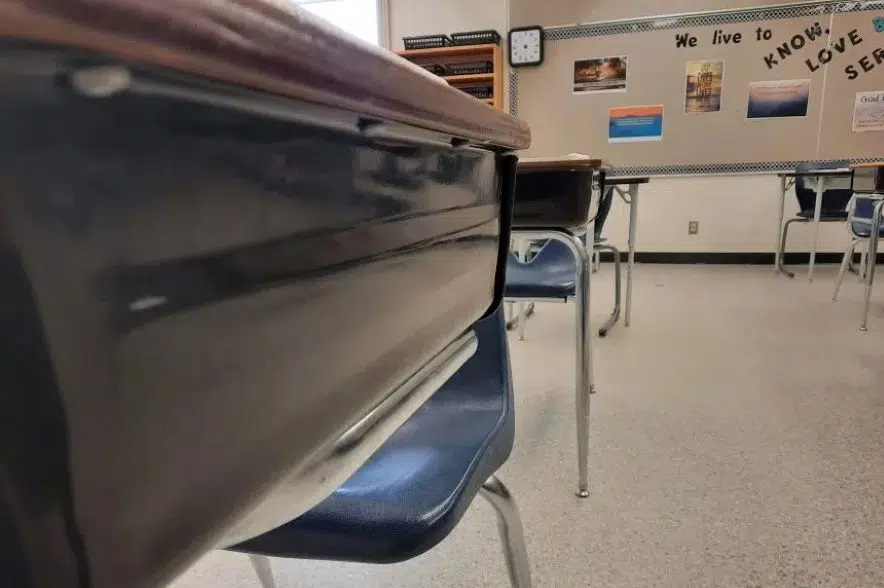After 95 per cent of members of the Saskatchewan Teachers’ Federation voted to impose sanctions on the provincial government, a Saskatoon-based employment lawyer joined Gormley to discuss the union’s move.
“It’s a very tough situation to manage,” Steven Seiferling said. “There’s no easy solution for these ones.”
On Oct. 16, STF president Samantha Becotte declared an impasse at the bargaining table with the provincial government after its negotiating team refused to discuss a number of issues put forward by the union.
At that time, Becotte said the STF would poll its members about possible sanctions. That voting occurred Tuesday and Wednesday.
After the results of the vote were released Friday, no specific sanctions were announced. But Becotte previously said those measures could range from a withdrawal of voluntary services, a work-to-rule job action, or a full withdrawal of services — in other words, a strike.
“The employer in this case is very unique,” Seiferling told Gormley. “When you’re dealing with government — and particularly the education system — strikes and sanctions like this are normally used to put economic pressure on a business.”
Seiferling said the weight of penalties is not necessarily shifting to the provincial government with the move to impose sanctions.
“In this case, the pressure is not on the Ministry of Education,” he said. “The pressure that ends up being applied is applied to students and parents in Saskatchewan as a result of the sanctions or strike action because the people who are most impacted are the students and the parents.”
Seiferling added the situation would be different if the employer was a for-profit business.
Before sanctions are decided on and imposed, Seiferling said they could be avoided if the STF and the provincial government get back to the bargaining table and come to an agreement.
Education Minister Jeremy Cockrill has expressed concern about a strike taking place and said the government is ready to get back on the bargaining table.
Seiferling said the government could take some steps in the wake of the teachers’ vote, but it’s not clear yet what those steps will need to be.
“There are some options open to government,” Seiferling said. “It will largely depend on what action ends up being taken by the teachers.”
If the teachers do decide to impose the most serious of sanctions, the provincial government could limit a possible strike by legislating the teachers back to work.











